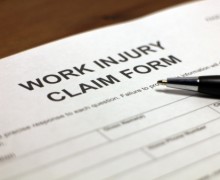
As a Kentucky worker you are likely covered by the Kentucky workers’ compensation system in the event that you are injured in a workplace accident. While most workers realize they are potentially entitled to workers’ compensation benefits for an on-the-job injury, there are likely a number of things you don’t know about the Kentucky workers’ compensation system.
Only an experienced Kentucky workers’ compensation attorney can evaluate your situation and provide you with specific advice regarding eligibility for benefits. However, the following five things you may not already know about the workers’ compensation system could come in handy at some point.
- An illness may also be covered. You probably know that injuries caused by a workplace accident are covered by workers’ compensation. However, did you know that an illness caused by your job may also be covered? Occupational diseases, for example, are covered by workers’ compensation. An occupational disease is caused by exposure to a hazard in the workplace, such as asbestos or toxic chemicals, and usually develops over time. The employer for whom the worker last worked and that exposed the worker to the hazard is the employer responsible for paying any benefits due to the worker.
- Psychological injuries may be covered. Psychological conditions, if caused by physical injury, may be compensable. For example, if you are injured in an attack during a robbery of the store where you work and later develop Post Traumatic Stress Disorder, or PTSD, that psychological condition may qualify you for additional or continuing workers’ compensation benefits.
- You might be an employee and not even know it. One of the most disputed issues in workers’ compensation claims is the distinction between an employee and an independent contractor. Employers often try to avoid workers’ compensation liability by classifying a worker as an independent contractor. However, you can challenge that classification. Four important factors are typically considered when determining if a worker is an employee or an independent contractor: the nature of the work performed as it relates to the business of the possible employer, the extent of control over details of the work, the professional skill of the worker and the intentions of the parties.
- You may qualify for retraining and education benefits. If you are unable to perform the work you once performed as a result of your injury or illness, you could qualify for up to 52 weeks or retraining or educational benefits. Tuition, books, and even transportation costs may be paid by the workers’ compensation system for you to learn a new skill or trade.
- You can appeal a denial of benefits. If you filed a claim for benefits and received a notice of denial you have a right to appeal that decision. Often, a claim is denied for technical reasons or for lack of sufficient information on which to approve a claim. Your appeal rights are time sensitive so speak with a Kentucky workers’ compensation attorney as soon as possible.













